
In today’s fast-paced and demanding world, stress has become an inevitable part of our lives. Whether it’s the pressure to meet deadlines, the challenges of juggling multiple responsibilities, or the constant demands of our jobs, stress can take a toll on our mental and physical well-being. However, it’s important to remember that stress is not necessarily a bad thing. In fact, it’s a natural response that helps us adapt and cope with the demands of our daily lives.
Operational stress, in particular, is a unique type of stress that is experienced by individuals in high-pressure and high-risk professions. From military personnel to emergency responders, these individuals face unique challenges that can lead to increased stress levels. However, building resilience and managing stress can help them thrive in these demanding environments.
Resilience is the ability to bounce back from adversity and recover quickly from stressful situations. It’s like a muscle that can be strengthened through practice and training. By developing resilience, individuals can better cope with the challenges they face and maintain their mental and emotional well-being. This is especially important in operational settings where the stakes are high and the consequences of stress can be severe.
Managing stress is another crucial aspect of operational stress control. It involves adopting healthy coping mechanisms and strategies to reduce the negative impact of stress on our lives. This can include activities such as exercise, meditation, and seeking support from friends and family. It’s important to remember that managing stress is a lifelong journey, and it requires constant effort and self-reflection.
Understanding Operational Stress
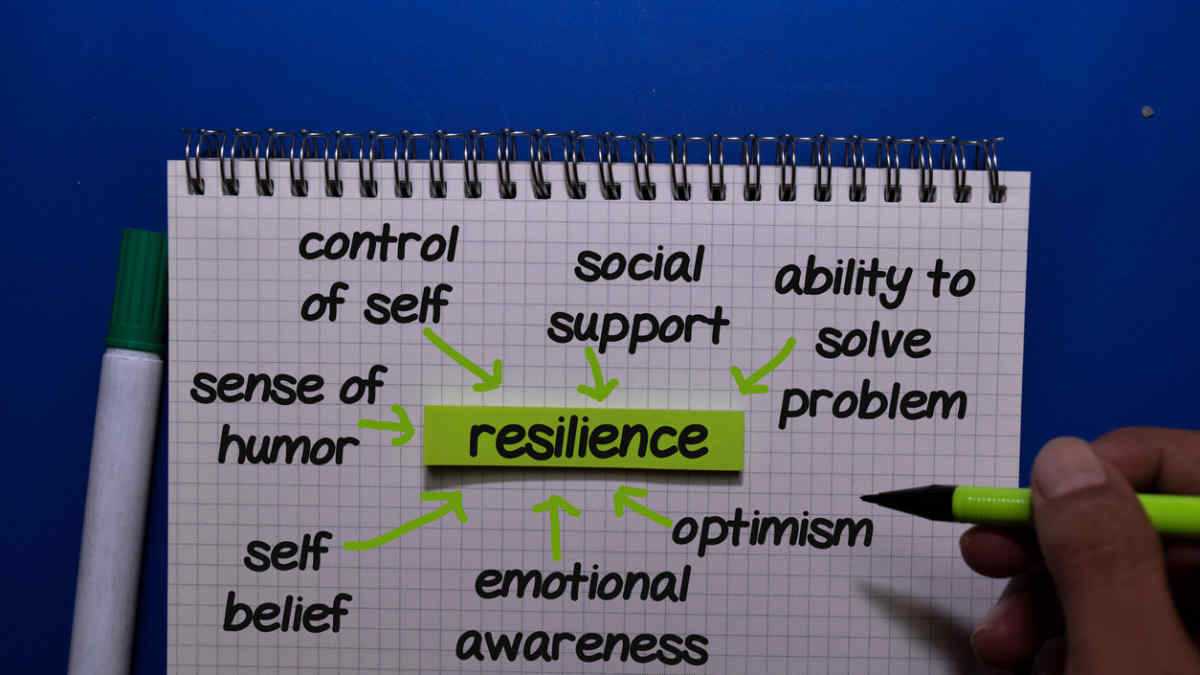
Operational stress refers to the physical, mental, and emotional strain experienced by individuals in high-pressure and demanding operational environments. It is a common challenge faced by military personnel, emergency responders, and other professionals who work in high-stress situations.
Operational stress can be caused by a variety of factors, including long hours, exposure to traumatic events, high levels of responsibility, and the need to make quick decisions under pressure. These stressors can have a significant impact on an individual’s well-being and can lead to a range of physical and psychological symptoms.
Building resilience and developing effective stress management strategies are essential for individuals who face operational stress. Resilience refers to the ability to bounce back from stressful situations and adapt to new challenges. It involves developing a strong support network, maintaining a positive outlook, and practicing self-care.
Control over operational stress can be achieved through a combination of individual and organizational strategies. Individual strategies may include developing healthy coping mechanisms, engaging in regular physical exercise, and seeking support from mental health professionals. Organizational strategies may involve implementing stress management programs and providing access to resources and support services.
By understanding the nature of operational stress and implementing effective resilience-building and stress management strategies, individuals can better navigate the challenges of high-pressure operational environments and maintain their well-being.
| Key Points: |
|---|
| – Operational stress is the physical, mental, and emotional strain experienced in high-pressure operational environments. |
| – Factors contributing to operational stress include long hours, exposure to traumatic events, and high levels of responsibility. |
| – Building resilience and developing stress management strategies are essential for individuals facing operational stress. |
| – Control over operational stress can be achieved through individual and organizational strategies. |
What is Operational Stress?
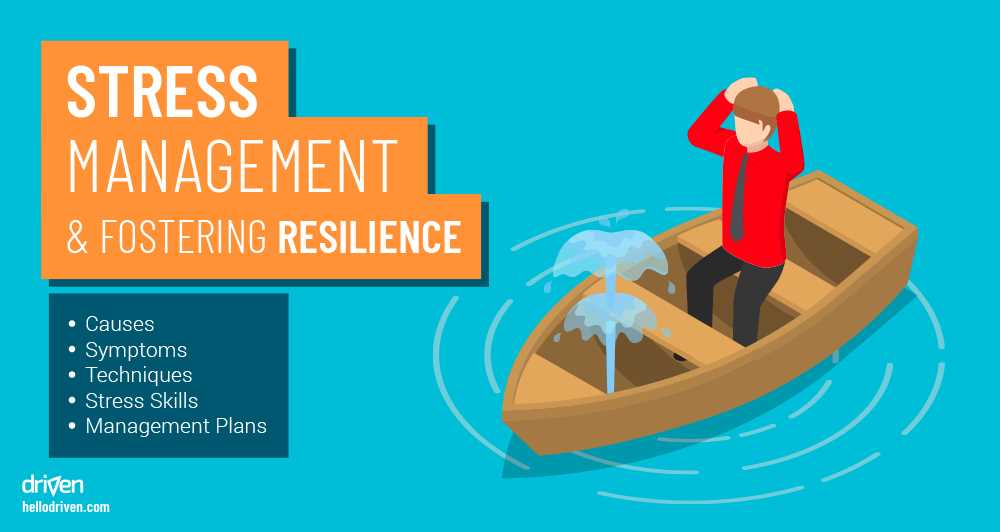
Operational stress is a term used to describe the stress that individuals experience in high-pressure or demanding situations, particularly in the context of their work or operational duties. It refers to the physical, mental, and emotional strain that can result from the demands and challenges faced in these situations.
Operational stress can arise from a variety of sources, including the nature of the job itself, the environment in which it is performed, and the expectations placed on individuals to perform their duties effectively. It can also be influenced by factors such as the level of control individuals have over their work, the support they receive from colleagues and superiors, and their own personal resilience.
Effective control and management of operational stress is crucial for building resilience and maintaining overall well-being. It involves developing strategies to recognize and cope with stress, as well as creating a supportive and healthy work environment. By proactively addressing and managing stress, individuals can enhance their ability to perform under pressure and maintain their physical and mental health.
Resilience is a key factor in managing operational stress. It refers to the ability to bounce back from adversity and adapt to challenging situations. Building resilience involves developing skills and strategies to cope with stress, such as maintaining a positive mindset, seeking social support, and engaging in self-care activities.
Overall, operational stress is a common experience for individuals in demanding and high-pressure work environments. By understanding and effectively managing this stress, individuals can build resilience and maintain their well-being, enabling them to perform their duties effectively and thrive in their operational roles.
Effects of Operational Stress
Operational stress can have a significant impact on an individual’s resilience and mental well-being. The constant exposure to high-stress situations can lead to a variety of physical and psychological symptoms.
One of the most common effects of operational stress is an increase in overall stress levels. The demands of the job, combined with the pressure to perform well, can lead to chronic stress. This can manifest as physical symptoms such as headaches, muscle tension, and fatigue, as well as emotional symptoms such as irritability, anxiety, and depression.
Operational stress can also have a negative impact on an individual’s ability to cope with stress. High-stress situations can overwhelm an individual’s coping mechanisms and lead to feelings of helplessness and hopelessness. This can further exacerbate stress levels and make it difficult for individuals to effectively manage their stress.
Furthermore, operational stress can impair cognitive function. The constant exposure to stress hormones can affect memory, attention, and decision-making abilities. This can have serious implications for individuals in high-pressure situations where split-second decisions are required.
It is important to recognize the effects of operational stress and take steps to mitigate its impact. Building resilience through stress management techniques, such as mindfulness and relaxation exercises, can help individuals better cope with and recover from stressful situations. Additionally, creating a supportive work environment and providing resources for mental health support can also contribute to the overall well-being of individuals facing operational stress.
Identifying Operational Stress
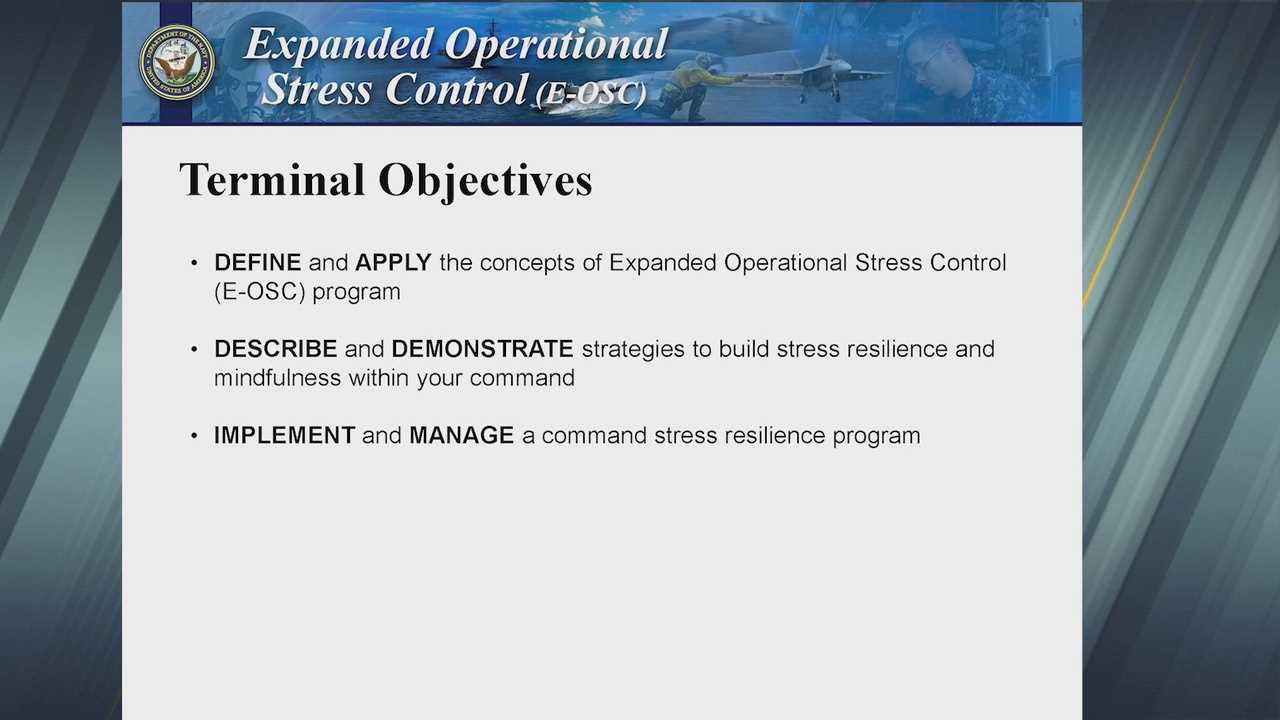
Identifying operational stress is crucial in order to effectively manage and control it. Stress can have a significant impact on individuals’ physical and mental well-being, as well as their ability to perform their duties effectively. By identifying the signs and symptoms of stress, individuals can take proactive steps to build resilience and manage their stress levels.
Some common signs of operational stress include increased irritability, difficulty concentrating, changes in sleep patterns, and feelings of overwhelm or helplessness. Physical symptoms such as headaches, muscle tension, and digestive issues can also be indicators of stress. It is important to pay attention to these signs and take them seriously.
One way to identify operational stress is through self-reflection and self-awareness. Individuals can take the time to assess their own stress levels and recognize when they may be experiencing heightened stress. This can involve regularly checking in with oneself and being honest about how one is feeling.
Another way to identify operational stress is through feedback from others. Colleagues, friends, and family members may notice changes in behavior or mood that could indicate elevated stress levels. It is important to be open to this feedback and consider it as a valuable source of information.
Once operational stress has been identified, individuals can take steps to address and manage it. This may involve seeking support from mental health professionals, engaging in stress-reducing activities such as exercise or mindfulness practices, and implementing strategies to build resilience.
Overall, identifying operational stress is an important step in the process of stress control and building resilience. By recognizing the signs and symptoms of stress, individuals can take proactive measures to manage their stress levels and maintain their well-being.
Building Resilience
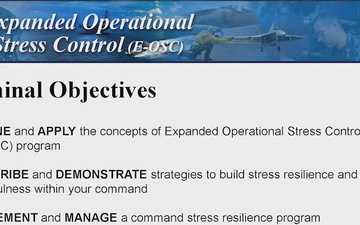
Building resilience is an essential component of operational stress control. Resilience refers to the ability to bounce back from stressful situations and adapt to change. It is a skill that can be developed and strengthened over time.
One way to build resilience is through stress management techniques. Learning how to effectively manage stress can help individuals cope with the demands of their operational roles and reduce the negative impact of stress on their mental and physical well-being.
Another important aspect of building resilience is maintaining a support network. Having a strong support system of friends, family, and colleagues can provide a sense of belonging and help individuals navigate through challenging times.
Additionally, self-care practices are crucial for building resilience. Engaging in activities that promote relaxation and self-reflection, such as exercise, meditation, and journaling, can help individuals recharge and build emotional strength.
Lastly, developing a positive mindset is key to building resilience. Focusing on gratitude, optimism, and personal growth can help individuals maintain a resilient outlook even in the face of adversity.
- Learn stress management techniques
- Maintain a support network
- Practice self-care
- Cultivate a positive mindset
By incorporating these strategies into their lives, individuals can build resilience and effectively manage stress in their operational roles.
Developing Coping Mechanisms
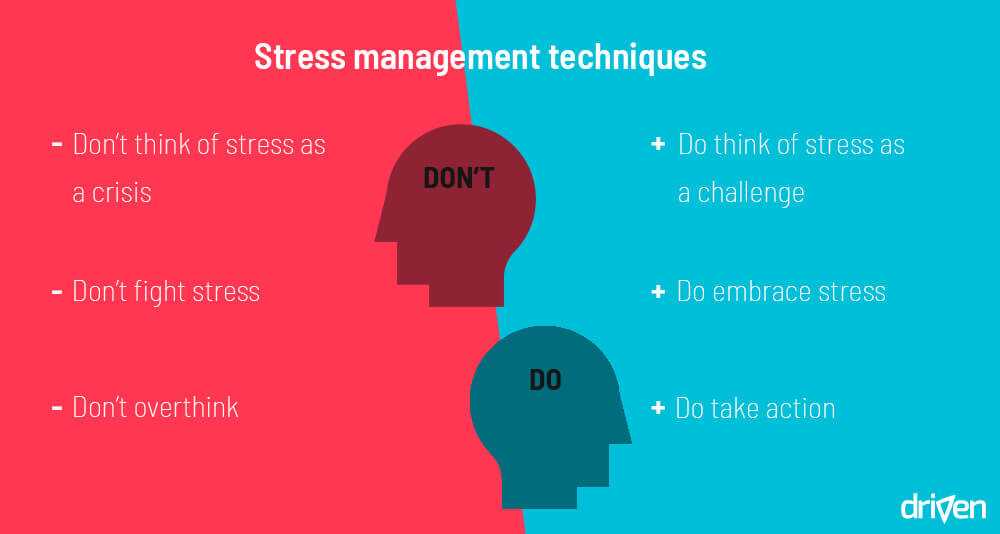
Resilience is an important trait to have when dealing with operational stress. Developing coping mechanisms can help individuals manage and overcome stress in a healthy way. Here are some strategies to develop coping mechanisms:
- Recognize stress triggers: Identifying the specific situations or events that cause stress can help individuals develop coping mechanisms tailored to those triggers.
- Practice relaxation techniques: Engaging in activities such as deep breathing exercises, meditation, or yoga can help reduce stress and promote relaxation.
- Seek social support: Talking to friends, family members, or colleagues about stress can provide emotional support and help individuals feel less alone in their struggles.
- Engage in physical activity: Regular exercise has been shown to reduce stress and improve overall well-being. Whether it’s going for a walk, hitting the gym, or participating in a sport, physical activity can be an effective coping mechanism.
- Practice time management: Learning to prioritize tasks, set realistic goals, and delegate responsibilities can help individuals feel more in control of their workload and reduce stress.
- Develop healthy coping strategies: Instead of turning to unhealthy habits such as excessive drinking or smoking, individuals can develop healthier coping mechanisms like journaling, listening to music, or engaging in hobbies.
- Seek professional help: If stress becomes overwhelming or begins to interfere with daily functioning, it’s important to seek help from a mental health professional who can provide guidance and support.
By developing coping mechanisms, individuals can build resilience and effectively manage operational stress. It’s important to remember that everyone’s coping mechanisms may be different, so it’s essential to find what works best for each individual.
Building Social Support
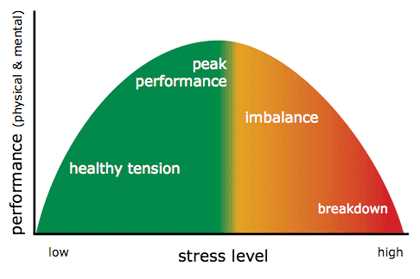
Building social support is a crucial aspect of operational stress control and building resilience. Social support refers to the network of family, friends, colleagues, and community members who provide assistance, encouragement, and validation during times of stress.
Having a strong social support system can help individuals better cope with stress and reduce the negative impacts of operational stress. Research has shown that individuals with higher levels of social support tend to have lower levels of stress and are more resilient in the face of adversity.
There are several ways to build social support:
1. Cultivate meaningful relationships: Take the time to nurture and develop relationships with family, friends, and colleagues. Engage in activities that promote bonding and connection, such as regular social gatherings or shared hobbies.
2. Seek support from others: Don’t hesitate to reach out to your social support network when you’re feeling stressed or overwhelmed. Share your thoughts and emotions with trusted individuals who can provide a listening ear, empathy, and practical advice.
3. Join support groups: Consider joining support groups or organizations that focus on stress management, resilience, or specific issues related to your line of work. These groups can provide a safe space to share experiences, learn coping strategies, and receive support from others who can relate to your challenges.
4. Be a supportive friend: Building social support is a two-way street. Show support and empathy towards others in your network when they’re going through difficult times. Offer a listening ear, provide encouragement, and be there for them when they need it.
5. Utilize technology: In today’s digital age, technology can also play a role in building social support. Stay connected with your support network through social media, video calls, or online forums. These platforms can provide a sense of connection and facilitate communication, even when physical distance is a barrier.
Remember, building social support is an ongoing process that requires effort and investment. By cultivating meaningful relationships, seeking support, joining support groups, being a supportive friend, and utilizing technology, you can strengthen your social support network and enhance your resilience in the face of operational stress.

I am Patrina de Silva, a psychologist and mental health blogger in Sri Lanka. After obtaining psychology degrees from the University of Colombo and Monash University, I returned home to work as a counselor while also starting the popular blog “Pressy but Happy” to provide advice on psychological issues. Over the past decade, my empathetic articles have made my blog a leading mental health resource in the country. In addition to writing, I maintain a private therapy practice, frequently volunteer counseling time, and conduct seminars, driven by my passion for destigmatizing mental illness and educating the public on the mind-body connection. I strive to be an influential voice in my field through my compassionate approach.
